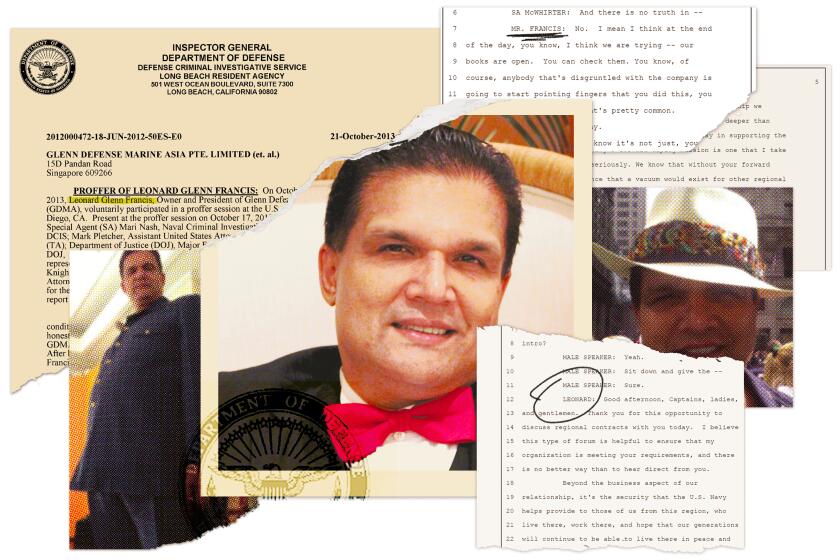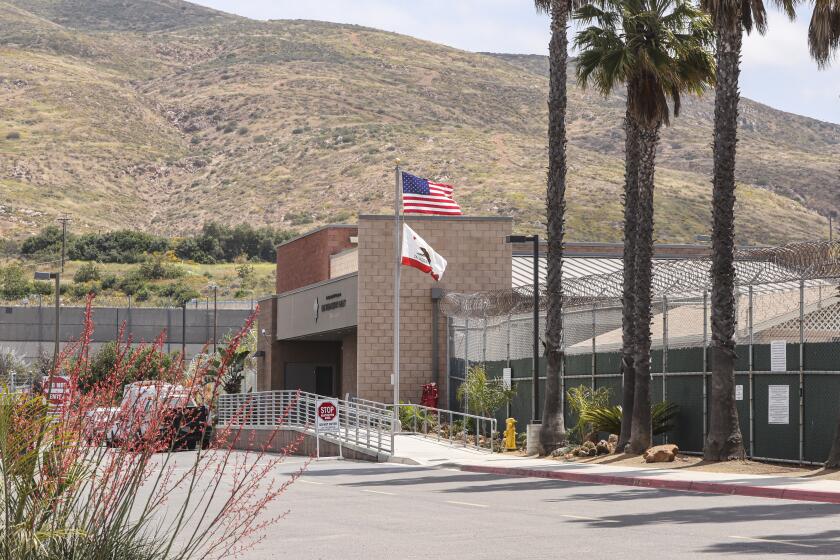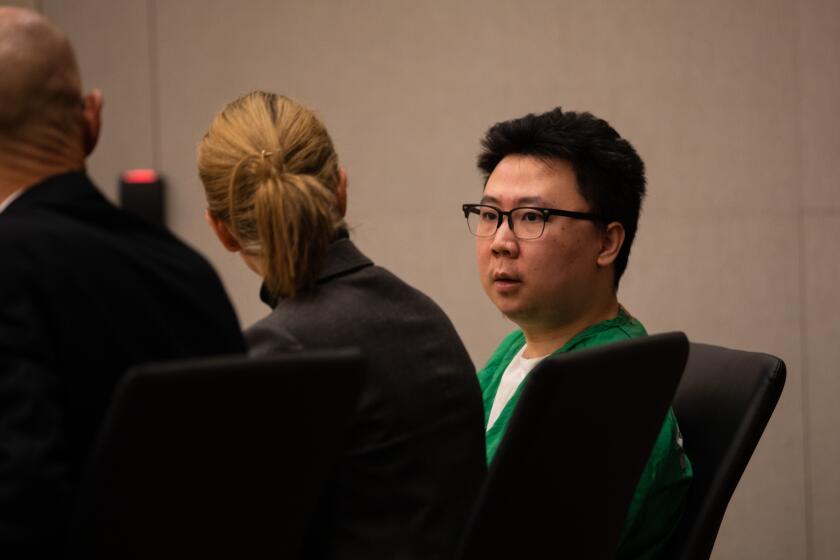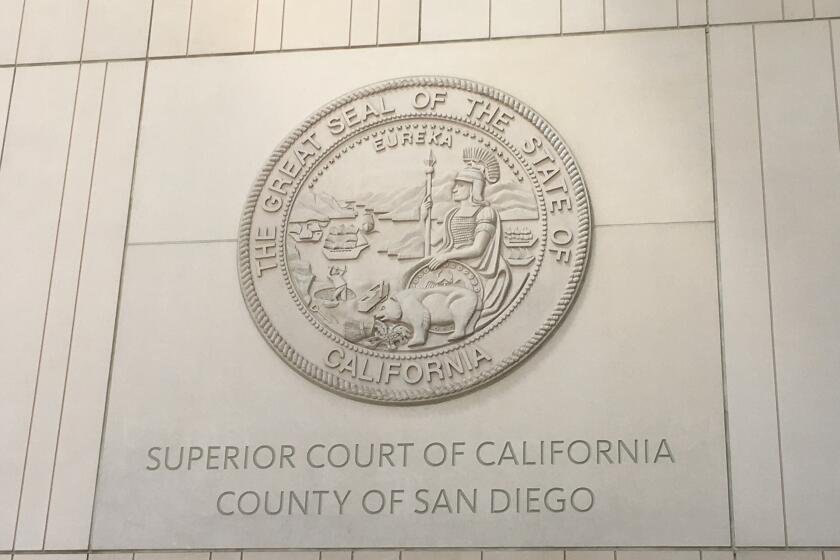The five cases of sexual harassment the District Attorney didn’t want you to see
Records of complaints from employees of the office against other employees from 2013 to 2018 were released under a court order
In July 2018 the First Amendment Coalition, a public interest group in San Rafael that advocates for government accountability, access to records and media rights, filed a lawsuit against the San Diego County District Attorney’s Office. The suit asked a judge to order the district attorney to comply with a Public Records Act request and release records of all sexual misconduct and harassment complaints by employees from 2013 to 2018.
The district attorney had refused to turn over the records, citing exemptions under the law that allow withholding records if they deal with personnel issues. Instead the office provided terse summaries of six total cases. In an April 2018 letter responding to the request, Deputy District Attorney Elizabeth Renner wrote that the employees who were the subject of the complaints “do not occupy positions of such public trust and responsibility,” and that disclosing their names was not required under the law.
The coalition filed suit, and earlier this year a San Diego judge ordered the release of five of the six records for which the DA’s office had provided summaries.
The sixth record, dealing with a district attorney investigator, was allowed to be withheld under peace officer privacy rights laws in California. The San Diego Union-Tribune has filed a Public Records Act request seeking that record under a new state law that went into effect this year, which made some peace officer records that used to be confidential open to the public.
Meantime, here are the five cases the District Attorney’s Office refused to disclose and did so only under a court order. A spokesman for the office declined to comment beyond the information in the records, citing personnel privacy rules.
The lawsuit is now over — with the county agreeing to pay the coalition $97,500 in legal fees.
Desmond Townsend
The paralegal supervisor received a “Letter of Warning” in 2016 for two incidents of sexual harassment involving a female employee.
In one incident during a performance review in January 2016 when the employee asked how she could improve her performance, he told her that she “might want to rein in” her breasts, using a derogatory term for that part of her anatomy. He also made a reference to a specific dress she wore a week earlier. In May, in front of coworkers, he said to the employee something like, “You should see where I’ve seen your phone number,” which was understood as implying he had seen the number somewhere unflattering such as the wall of a men’s bathroom.
He told investigators the phone number comment was meant as a joke. He admitted commenting on her breasts but said the word “puppies” was used by another person (whose name was redacted) when referring to the employee.
He was instructed to no longer make sexual innuendo jokes and not make comments to women about their attire, especially to the employee.
Townsend still works at the District Attorney’s Office. He didn’t provide a response by the Union-Tribune’s deadline.
Alberto Leppe
The senior IT engineer received a Letter of Warning in May 2017. He was cited for repeatedly tugging on the pony-tailed hair of a student worker at the office.
He also was accused of using derogatory language. He referred to African-Americans as “monkeys,” and when a co-worker returned from a trip to San Francisco he made a comment to her, using an offensive word often used to refer to gay people. He was also accused of making several inappropriate comments about women and their looks.
The records say he denied the allegations, but investigators were able to corroborate the San Francisco comment as well as a different comment about slapping that the report said had “sexual overtones.” He provided an “alternative explanation” for the monkey comment and admitted he had touched the worker’s hair twice, the records relate.
He was warned not to make comments with sexual innuendo, not touch other employees and not make derogatory comments. He is still employed by the office. He did not respond to a request from the Union-Tribune for comment.
Andel Williams
The paralegal was apparently upset about not getting a promotion in 2016 and told a female colleague who was promoted, “Maybe I should grow a pair of boobs?” He apologized four days later, but still was interviewed by the Employee Relations Office for a hostile work environment allegation. He was counseled and later transferred to a different unit.
The records contain a chronology of Events for Williams listing complaints of sexual harassment and inappropriate comments from 2011 and 2015. In the 2011 incident he received a Letter of Warning stating he violated the county’s sexual harassment policy and was told to retake sexual harassment prevention training. Someone had complained he had sexually harassed her over a period of time by making “inappropriate gestures and statements” among other things, according to the chronology.
In the 2015 incident, the employee who initially made a complaint against Williams — again for inappropriate comments and actions — later retracted it.
He is still works at the District Attorney’s Office. He did not respond to a request for comment.
Michael MacNeil
A former Deputy District Attorney, he was investigated in 2016 for sending emails with nude photos of him in the workplace, and copies of him sexting someone else. He resigned in June 2016 while under administrative investigation for the emails and texts, records show.
Now in private practice, he did not respond to a request for comment.
Don Morton
A paralegal supervisor, he was investigated in 2013 after a paralegal who worked for him complained he had sexually harassed her for several months. An investigation sustained the allegations.
While the records contain a Letter of Reprimand from Oct. 1, 2013, it was not signed by Morton. In their initial response to First Amendment Coalition , the summary of this case said the employee resigned before discipline could be imposed. A spokesman for the office said he resigned in 2013.
Morton could not be located for comment.
The latest news, as soon as it breaks.
Get our email alerts straight to your inbox.
You may occasionally receive promotional content from the San Diego Union-Tribune.







